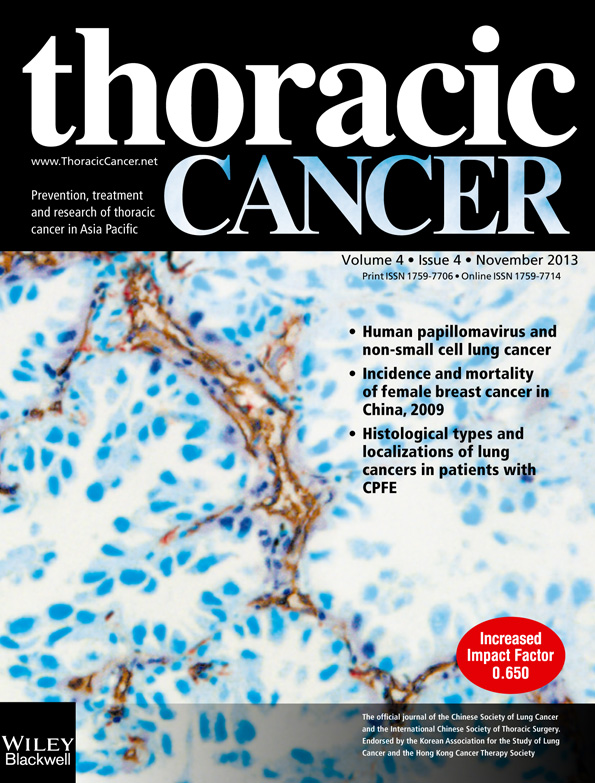Validation of the 7th edition American Joint Committee on cancer staging system for esophageal squamous cell carcinoma
Abstract
Background
The purpose of this study is to investigate the ability of the 7th edition of the American Joint Committee on Cancer tumor-nodes-metastasis (AJCC/TNM) staging system to distinguish between patients at higher risk and to predict the overall survival in patients who underwent surgical resection for esophageal squamous cell carcinoma (ESCC).
Methods
Between 1998 and 2008, 560 patients with ESCC underwent R0 tri-incisional esophagectomy at our center without neoadjuvant or adjuvant therapy. We performed univariate and multivariate analyses to identify prognostic factors for survival.
Results
The five-year overall survival rate was 44.1%, with a median survival of 44 months. Gender, pT status, pN status, and the retrieved lymph nodes (LNs) category (<15 vs. ≥15) were found to be significant prognostic factors, whereas histology grade and tumor location were not significant prognostic factors in our analysis. When classified as all eight sub-stages, there were similar survival curves between stages IB and IIA (P = 0.799), and stages IIIC and IV (P = 0.635). Multivariate Cox proportional hazard regression analysis indicated that gender, pT category, pN category, and the retrieved LNs category (<15 vs. ≥15) were significantly associated with patient survival.
Conclusion
The 7th edition AJCC staging system proposed a new descriptor for “N” classification. Further stratification of pN status according to number of positive LNs in the 7th edition is valuable. However, we did not find tumor location and histology grade were significant prognostic factors. Moreover, adding a substantially higher threshold of LNs retrieved in the next revision of the AJCC/TNM staging system for ESCC may be more valuable.




